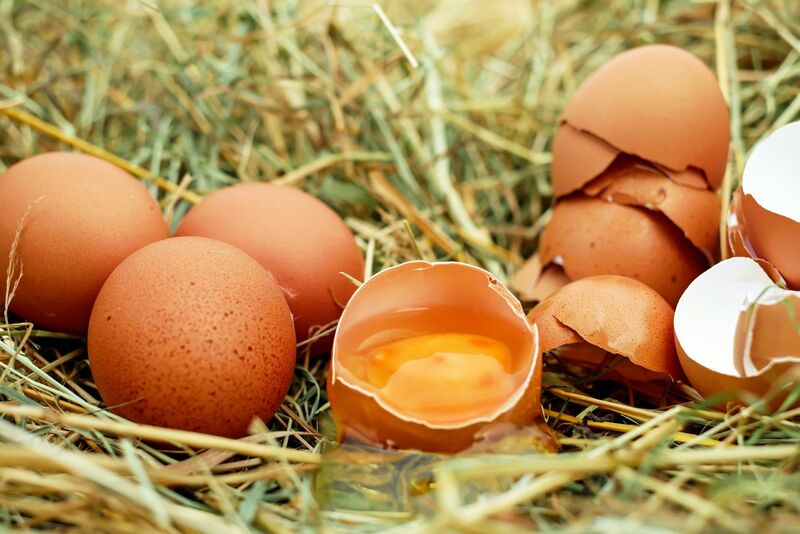
Last Week’s Moves
Corn 641-1 (+1.70%) | Soybeans 1486-2 (+1.66%) | SRW Wheat 705-6 (+2.14%)
KC Wheat 875-4 (+1.98%) | Live Cattle 164.850 (+0.81%) | Lean Hogs 88.300 (-0.95%)
________________________________________________________________________________________________________________________________
Welcome to your weekly agriculture report, where we cover everything you’ll need to know for the week ahead. This week, egg prices decline and the Black Sea Grain Deal is at risk of being shut down.
Egg Prices Fall After Record-High Prices
Egg prices fell by almost 11% in March, the U.S. Bureau of Labor Statistics said last week, following a 7% decline in February and delivering relief from record-high prices over the winter. The March price drop is the largest month-to-month decline in 36 years.
- Egg-treme prices… The biggest contributor to high egg prices was the avian flu, which forced farmers to cull chickens on a large scale. In the US alone, avian flu infected about 10% of the egg-laying hens last year.
- Egg prices crack… Other factors that contributed to the increase in prices include higher fuel, feed, and fertilizer costs. The recent decrease in egg prices can be attributed to several factors, including the recovery of laying hen populations and reductions in fuel and feed costs.
- Egg-citing news… Mark Zandi, the Chief economist for Moody's Analytics, speculated that the decrease in egg prices, coupled with a decline in overall grocery prices, might be a sign "the food inflation fever has been broken.”
Black Sea Grain Deal at Risk of Being Shut Down
On Monday Kyiv reported that a United Nations (U.N.)-brokered plan enabling the secure export of Ukrainian grain through the Black Sea could face a "shutdown" due to Russia's interference in the examination of participating ships in Turkish waters.
- Black Sea blockade… Ukrainian Black Sea ports were blockaded after Russia's invasion last year, but last July, Moscow, and Kyiv reached a deal, brokered by Turkey and the U.N., allowing access to three of these ports.
- Agriculture agreement… The agreement aimed to alleviate a global food shortage, and while it was recently extended, Ukraine expressed concerns about the insufficient number of cargo ships carrying Ukrainian agricultural products via the Bosporus. Bridget Brink, the U.S. ambassador to Ukraine, said on Twitter over 50 ships were awaiting approval to go to Ukrainian ports "to load grain that will feed those who need it."
- Russia’s response… Russia did not respond to Brink's or the ministry's comments. However, they said a separate deal, under which the U.N. agreed to help Russia with its food and fertilizer exports, is not working.
Last year the bloc, of which Poland and Hungary are member states lifted tariffs on Ukrainian grain to help transport it to the rest of the world amid Russia’s invasion. However, this resulted in a surplus of agricultural products in Europe.
- Plunging prices… At first, those governments supported EU plans to shift the surplus grain. But instead of transiting seamlessly onto global markets, the surplus of agricultural products in Europe pushed down prices and as a result, farmers in Poland, Hungary, and other nations have seen their incomes plummet.
- Shifting support… Now, governments are concentrating on restricting Ukrainian imports to protect their own markets. Over the weekend Poland and Hungary banned imports of grain and other food products from Ukraine.
- Reviewing restrictions… The European Union has criticized the bans and is seeking further information on the import restrictions from Warsaw and Budapest. According to a statement from The European Commission, "Trade policy is of EU exclusive competence and, therefore, unilateral actions are not acceptable.”
What else you need to know…
- Repair restrictions… According to a recently published survey, farmers are facing an annual loss of $3,348 due to repair delays and limitations caused by restrictions imposed by farm equipment manufacturers on their ability to repair tractors, combines, and other equipment.
- Gender gap… According to a recent report by the Food and Agriculture Organization (FAO) gender disparities within the food and agriculture industry are resulting in a loss of $1 trillion globally. The report highlights that women farmers have limited access to resources and knowledge, which leads to a productivity gap of 24% between male and female farmers of equal farm sizes.
- Wheat wars… As per the U.S. Department of Agriculture's forecast, China is predicted to become the world's primary wheat importer in the year 2022-23, surpassing Egypt. China's estimated purchase of 12 million tonnes of wheat will be the highest level since 1995-96 when they imported 12.5 million tonnes.
- Flu Focus… Officials have stated that the U.S. government is currently examining various potential vaccines for bird flu in poultry, following the loss of over 58 million chickens, turkeys, and other birds during the country's most severe outbreak to date.
That’s all we have for you this week, do you have anything for us? We’d love to hear from you with stories or recommendations for new sections to include! Drop us a line at news@barchart.com with any feedback or input.
More Grain News from Barchart
- Double Digit Gains for Wheat Market
- Corn Gaining through Midday
- Beans Gaining Double Digits
- Coffee Prices Jump as Global Supplies Expected to Remain Tight







